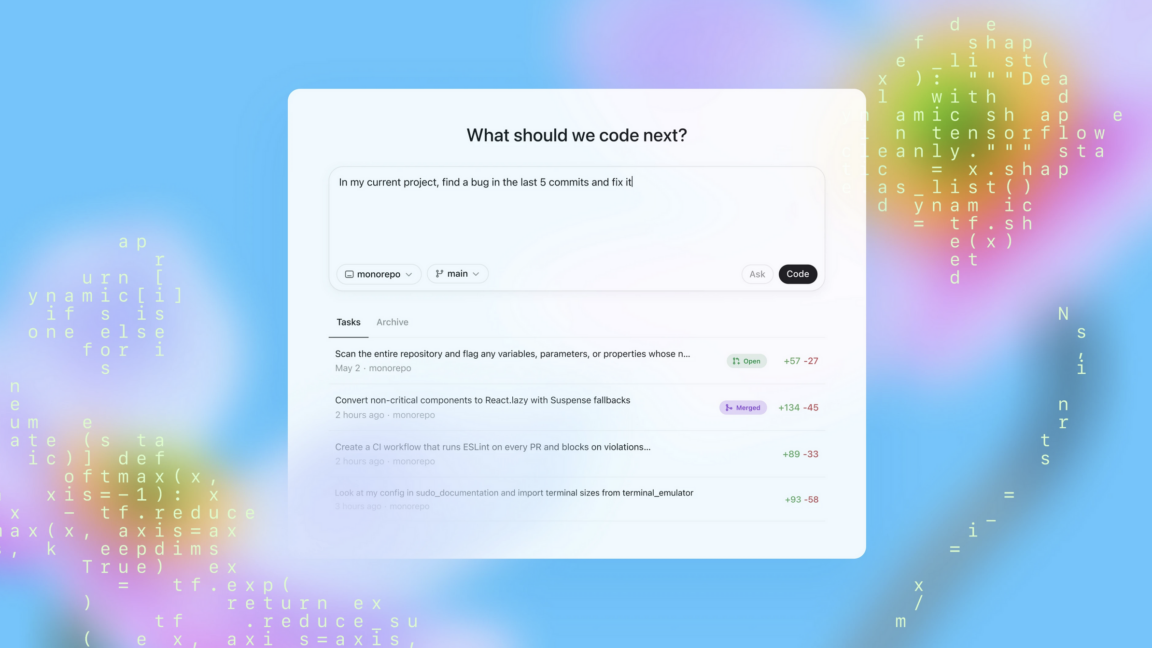
Credit: OpenAI
We've been expecting it for a while, and now it's here: OpenAI has introduced an agentic coding tool called Codex in research preview. The tool is meant to allow experienced developers to delegate rote and relatively simple programming tasks to an AI agent that will generate production-ready code and show its work along the way.
Codex is a unique interface (not to be confused with the Codex CLI tool introduced by OpenAI last month) that can be reached from the side bar in the ChatGPT web app. Users enter a prompt and then click either "code" to have it begin producing code, or "ask" to have it answer questions and advise.
Whenever it's given a task, that task is performed in a distinct container that is preloaded with the user's codebase and is meant to accurately reflect their development environment.
To make Codex more effective, developers can include an "AGENTS.md" file in the repo with custom instructions, for example to contextualize and explain the code base or to communicate standardizations and style practices for the project—kind of a README.md but for AI agents rather than humans.
Codex is built on codex-1, a fine-tuned variation of OpenAI's o3 reasoning model that was trained using reinforcement learning on a wide range of coding tasks to analyze and generate code, and to iterate through tests along the way.
OpenAI's announcement post about Codex is filled with objection handling to tackle the common refrains against AI coding agents; based on older tools and models, many developers accurately point out that LLM coding tools (especially when used for vibe coding instead of just for code completion or as an advisor) have been known to produce scripts that don't follow standards, are opaque or difficult to debug, or are insecure.
The fine tuning that led to codex-1 is meant to address these concerns in part, and it's also key that Codex shows its thinking and work every step of the way as it goes through its tasks (which can take anywhere from one to 30 minutes to complete). All that said, OpenAI notes that "it still remains essential for users to manually review and validate all agent-generated code before integration and execution."
Codex is available in a research preview, but it's rolling out to all ChatGPT Pro, Enterprise, and Team users now. Plus and Edu support is coming at a later date. For now, "users will have generous access at no additional cost for the coming weeks" so that they "can explore what Codex can do," but OpenAI says it intends to introduce rate limits and a new pricing scheme later.

-
 C114 Communication Network
C114 Communication Network -
 Communication Home
Communication Home


